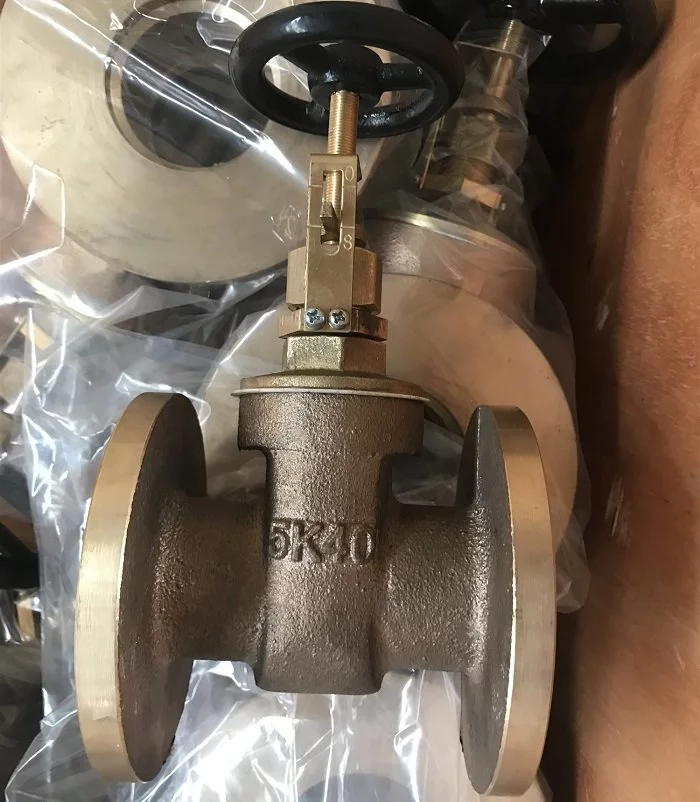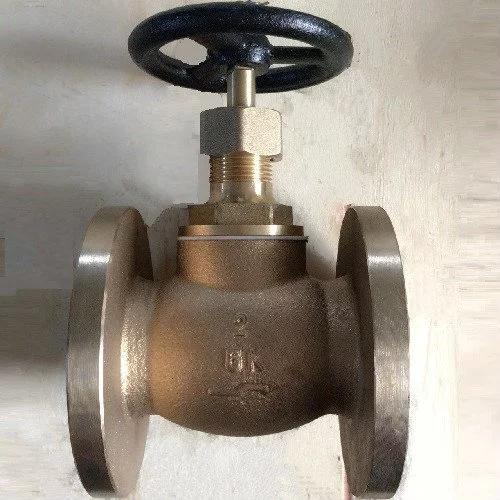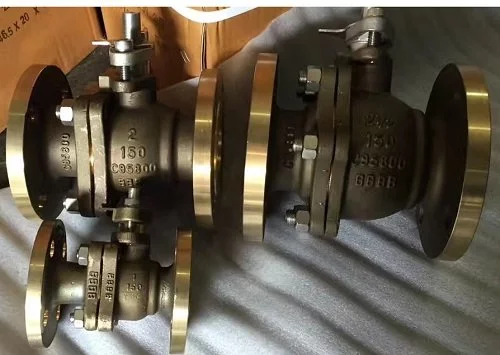Valves for seawater applications need to be specifically designed to withstand the harsh conditions of saltwater environments. Saltwater can be corrosive, so the materials used in these valves should be resistant to corrosion.
When it comes to choosing materials for seawater valves, there are a few factors to consider. Seawater is known for its corrosive nature, so the material you select should have excellent resistance to corrosion and erosion. Here are a few common materials used for seawater valves:
1. Bronze: Bronze is a popular choice due to its excellent resistance to corrosion in seawater. It also has good mechanical properties and can withstand high pressures. However, it may not be suitable for certain applications where higher strength or resistance to erosion is required.
2. Duplex Stainless Steel: This type of stainless steel offers a combination of high strength and excellent corrosion resistance. It is often used in seawater applications where both strength and resistance to corrosion are crucial.
3. Super Duplex Stainless Steel: Super duplex stainless steel is even more resistant to corrosion and erosion than duplex stainless steel. It provides excellent mechanical properties and is highly suitable for seawater applications, especially in harsh environments.
4. Nickel-Aluminum Bronze: This material is specifically designed for seawater applications. It offers excellent resistance to corrosion, erosion, and biofouling. Nickel-aluminum bronze is often used for valves in marine environments.
5. Titanium: Titanium is highly resistant to corrosion in seawater and has good mechanical properties. It is commonly used in critical seawater applications where corrosion resistance is of utmost importance. However, titanium can be expensive compared to other materials.
Remember, the choice of material also depends on specific factors such as temperature, pressure, and the type of seawater application. It's always a good idea to consult with experts or refer to industry standards to ensure you select the most suitable material for your seawater valves.
In addition to the material, the design of the valve is important. Seawater valves often have special coatings or linings to provide an extra layer of protection against corrosion. They may also have features like extended stems or bonnets to prevent seawater from entering the valve body.
It's worth noting that different types of valves are suitable for different applications. For seawater, butterfly valves, gate valves, globe valves, and ball valves are commonly used. Each type has its own advantages and considerations, so it's important to choose the right valve based on the specific requirements of the application.
Butterfly Valves for Seawater Application
A butterfly valve for seawater application is a type of valve specifically designed to handle the corrosive nature of seawater. It is commonly used in various industries such as marine, oil and gas, and desalination plants.
The butterfly valve gets its name from the disc inside, which resembles a butterfly's wings. This disc is connected to a rod that can be rotated to control the flow of seawater. When the valve is fully open, the disc is parallel to the flow, allowing for maximum water passage. When it is closed, the disc is perpendicular to the flow, effectively blocking the water.
One of the key considerations for a butterfly valve used in seawater applications is the material used. Due to the corrosive nature of seawater, the valve should be made of materials that can withstand the saltwater environment, such as stainless steel or bronze. These materials provide excellent resistance to corrosion and ensure the longevity of the valve.
Additionally, butterfly valves for seawater applications often come with special coatings or linings to further protect against corrosion. These coatings can include epoxy or rubber linings, which act as an additional barrier between the seawater and the valve's material.
It's important to choose a butterfly valve that is specifically designed and rated for seawater applications to ensure optimal performance and durability. Consulting with a valve supplier or an engineer with expertise in seawater applications can help you select the right valve for your specific needs.

Gate Valve for Seawater Application
Gate valves for seawater applications are designed specifically to withstand the corrosive nature of seawater. These valves are typically made of materials such as bronze, stainless steel, or duplex stainless steel, which have high resistance to corrosion.
Seawater gate valves are commonly used in marine industries, offshore platforms, desalination plants, and other applications where seawater needs to be controlled or isolated. The gate valve design allows for a straight-through flow when fully open, providing low-pressure drop and efficient flow control.
When selecting a gate valve for a seawater application, it's essential to consider factors such as the operating pressure, temperature, and specific requirements of the application. Additionally, proper maintenance and regular inspections are necessary to prevent any potential issues caused by the harsh seawater environment.
It's always recommended to consult with a valve manufacturer or a professional who specializes in seawater applications to ensure you choose the right gate valve that meets your specific needs and requirements.

Globe Valve for Seawater Application
If you're looking for a globe valve for seawater applications, there are a few factors to consider. Seawater is corrosive, so you'll want to ensure that the valve material can withstand its effects. Stainless steel is a common choice for such applications due to its corrosion resistance.
In addition to material, you should also consider the valve's design and durability. Look for valves with a robust construction that can handle the high pressures and temperatures typically found in seawater systems. It's also important to choose a valve with good sealing capabilities to prevent leaks.
Another aspect to consider is the size and flow capacity of the valve. Make sure to select a valve that matches the requirements of your specific seawater system.
Lastly, don't forget to check for any industry standards or certifications that the valve should comply with. This ensures that the valve meets the necessary quality and safety requirements for seawater applications.
Ultimately, it's best to consult with a valve supplier or expert who can guide you in selecting the most suitable globe valve for your specific seawater application.

Ball Valve for Seawater Application
When it comes to selecting a ball valve for seawater applications, there are a few important factors to consider. Seawater is known for its corrosive properties, so you'll want to choose a valve that is specifically designed to withstand the harsh conditions.
Firstly, look for a ball valve that is made from materials that are highly resistant to corrosion, such as stainless steel, bronze, or certain types of plastics. These materials have proven to be effective in seawater applications.
Secondly, ensure that the valve has proper sealing capabilities to prevent any leakage. A reliable ball valve should have a tight seal to prevent seawater from escaping or contaminating other components.
Additionally, consider the pressure and temperature requirements of your specific seawater application. Make sure the ball valve you choose can handle the expected pressure and temperature range without any issues.
It's also worth noting that some ball valves come with additional features like anti-scaling coatings or special designs to minimize the buildup of marine growth. These can be beneficial if you anticipate dealing with such challenges in your application.
Lastly, consult with a trusted supplier or valve manufacturer who can provide guidance and recommend the best ball valve for your specific seawater application. They can take into account your requirements and help you make an informed decision.
Remember, choosing the right ball valve is crucial to ensure the longevity and reliability of your seawater system.

